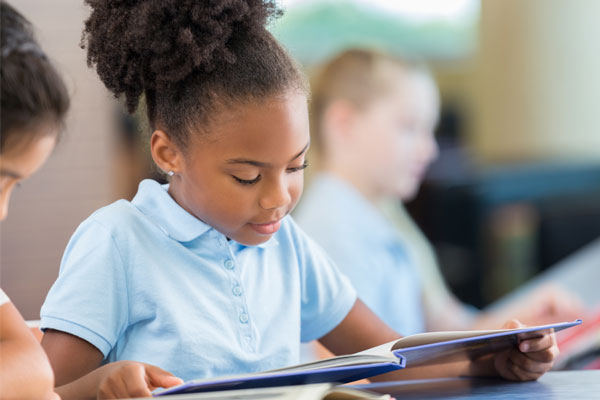Comprehensive Guide to Remedial Schools in Johannesburg for Knowing Support
Wiki Article
The Necessity of Remedial Schools in Bridging Educational Gaps and Fostering Confidence in Trainees That Experience Knowing Problems
The duty of remedial schools in attending to the instructional demands of students with discovering troubles can not be underrated. These institutions offer important treatments via customized instruction that not only targets skill deficits but also fosters an atmosphere for building self-confidence. As students participate in personalized learning experiences, they frequently discover paths to success that were previously obscured. The effect of such academic methods prolongs beyond immediate scholastic results, increasing vital inquiries regarding their long-lasting effectiveness and the more comprehensive effects for our academic system. What transformative possibilities might arise from a much deeper expedition of this issue?Recognizing Knowing Difficulties
Comprehending discovering troubles is necessary for parents, instructors, and caretakers alike, as these obstacles can significantly affect a trainee's scholastic trip. Each problem offers one-of-a-kind obstacles that can hinder a student's performance in standard instructional setups.Identifying the indicators of finding out troubles early is crucial for timely treatment. Signs might materialize as difficulties in checking out comprehension, mathematical reasoning, or preserving interest during lessons. Once identified, a tailored method that takes into consideration the individual's specific demands is vital for efficient knowing. This may involve differentiated instruction, specialized resources, or behavior strategies intended at cultivating interaction and understanding.
Moreover, recognizing the psychological and emotional ramifications of discovering problems is crucial. Trainees commonly experience stress, anxiety, or decreased self-confidence because of their struggles, which can further hinder their academic progress. By cultivating a setting of assistance and understanding, instructors and caretakers can help mitigate these obstacles, encouraging pupils to achieve their full prospective despite their difficulties.
Role of Remedial Schools
Therapeutic colleges play an essential duty in attending to the particular needs of pupils with discovering difficulties. These institutions offer an alternative instructional atmosphere customized to sustain students that may battle in standard settings. By concentrating on personalized learning strategies, remedial colleges produce a risk-free space where pupils can construct foundational abilities at their own rate, promoting a feeling of belonging and lowering anxiety frequently connected with academic difficulties.Along with scholastic assistance, restorative institutions stress the advancement of self-esteem and confidence amongst students. By commemorating tiny accomplishments and offering favorable reinforcement, teachers aid students identify their potential, which can considerably affect their overall scholastic trajectory. Furthermore, such institutions often utilize specific team trained in acknowledging and addressing different finding out troubles, guaranteeing that trainees obtain ideal interventions and resources.

Tailored Direction Techniques
Effective tailored guideline methods are vital for satisfying the diverse requirements of trainees with learning troubles. These approaches include adapting training evaluations, materials, and techniques to align with specific discovering profiles, thereby boosting educational involvement and comprehension.One reliable strategy is set apart direction, where educators change material, process, and items based upon trainees' preparedness levels, passions, and learning choices. This technique allows for different job complexity, making it possible for students to involve with the product at a suitable degree.
Additionally, using assistive modern technologies can considerably sustain customized instruction. remedial schools in Johannesburg. Devices such as speech-to-text software program and interactive learning applications can offer different ways for trainees to gain access to and show knowledge
Integrating multisensory strategies is an additional crucial approach; by engaging visual, acoustic, and kinesthetic methods, instructors can create a much more inclusive understanding environment that addresses various discovering styles.
Routine analysis and responses are essential elements of customized guideline, as they educate educators about students' progress and areas needing additional assistance. Inevitably, the implementation of these strategies fosters an adaptive knowing environment where students with learning difficulties can flourish academically and socially.
Building Trainee Confidence
Building student self-confidence is essential for fostering a favorable understanding setting, especially for those with discovering problems. Confidence works as a driver for engagement and willpower, allowing students to take on obstacles they could or else shy away from. In remedial institutions, educators utilize different techniques to build this essential self-belief.One effective strategy entails setting achievable objectives customized to individual pupils' capacities. When trainees experience success, despite exactly how small, it enhances their belief in their abilities and encourages them to pursue further success. Furthermore, supplying consistent, positive feedback aids pupils recognize their development and areas for improvement without decreasing their self-confidence.
Developing a supportive class environment is additionally important. Urging peer collaboration promotes a sense of belonging and decreases sensations of isolation. Educators can facilitate team tasks that highlight each trainee's strengths, emphasizing that everybody has unique contributions to make.
Furthermore, integrating social-emotional Your Domain Name understanding into the educational program can furnish students with necessary coping mechanisms, enabling them to take care of setbacks better. By prioritizing confidence-building initiatives, remedial colleges prepared for students to accept understanding and develop resilience, eventually changing their instructional experiences.
Long-term Benefits of Remedial Education And Learning
Enhancing scholastic abilities via remedial education provides considerable lasting advantages for students facing learning problems. By attending to fundamental voids in expertise, therapeutic programs equip students with vital abilities important for scholastic success. This targeted guideline not just promotes enhanced performance in core subjects but additionally lays the foundation for advanced learning.One of the most notable lasting advantages is raised scholastic success. Pupils that join restorative education typically experience higher graduation prices and improved standardized examination scores, opening up doors to more educational possibilities. In addition, the abilities obtained throughout restorative instruction encourage long-lasting discovering behaviors, advertising resilience and adaptability despite difficulties.
Additionally, therapeutic education dramatically enhances self-efficacy. As trainees visit this website gain capability in their scholastic abilities, they develop a favorable self-image and greater self-confidence in their capability to do well (remedial schools in Johannesburg). This newfound self-confidence can translate into energetic engagement in institution and extracurricular activities, promoting social abilities and interaction
Verdict
In final thought, therapeutic institutions are necessary in attending to instructional spaces for pupils with learning problems. By giving tailored direction and cultivating a supportive setting, these organizations not just facilitate academic success yet also improve trainee self-confidence. The individualized methods employed within restorative education and learning advertise Continue resilience and a love for lifelong discovering. Consequently, the significance of restorative schools expands past immediate academic accomplishment, adding to the total growth of abilities necessary for future ventures.
Enhancing scholastic skills via restorative education supplies considerable lasting benefits for pupils dealing with finding out problems.In conclusion, remedial colleges are vital in addressing instructional voids for trainees with learning troubles.
Report this wiki page